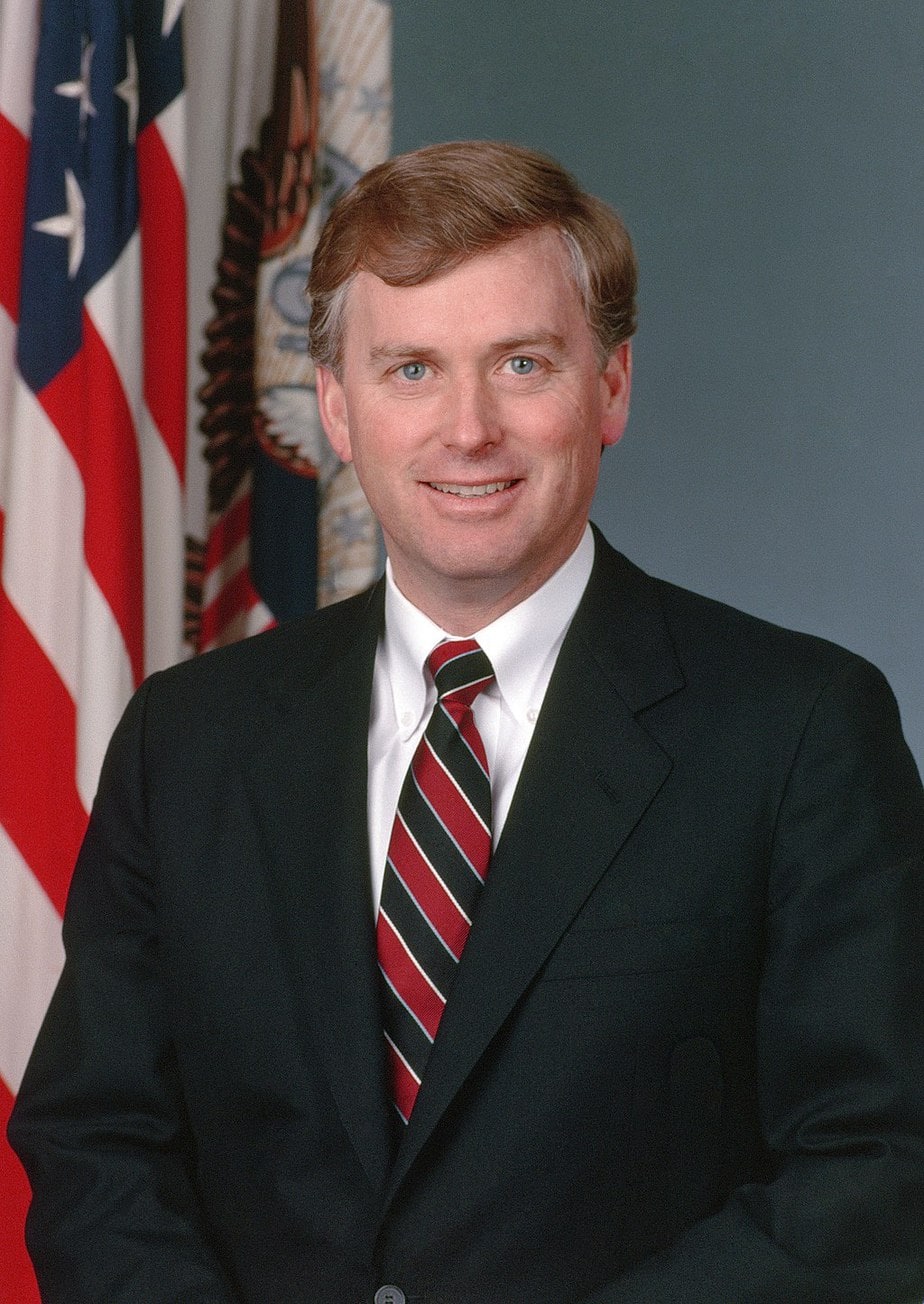Who Was The Youngest Vice President In The United States?
Throughout history, the United States has seen numerous leaders and political figures who have shaped the nation. Among these figures is the youngest vice president in U.S. history, a title that holds significant importance. The position of vice president is not only a critical role in the executive branch but also a stepping stone to the presidency. In this article, we will explore who holds the record for being the youngest vice president in the United States.
This article delves into the fascinating story of the individual who achieved this milestone. From their early life to their political career and beyond, we will uncover what made them a pivotal figure in American history. Understanding their journey provides insight into the qualities and challenges of leadership in the modern world.
As we explore the youngest vice president in U.S. history, we will also touch upon the significance of their role and how it impacted the political landscape. This article aims to provide a comprehensive overview of their life, achievements, and legacy, making it an essential read for history enthusiasts and political analysts alike.
Read also:Luhkye Net Worth Unveiling The Secrets Behind The Rising Stars Wealth
Table of Contents
- Biography
- Early Life and Education
- Political Career
- The Youngest Vice President
- Presidential Ambitions
- Legacy and Impact
- Challenges Faced
- Controversies and Criticisms
- Fun Facts
- Conclusion
Biography
Overview of the Youngest Vice President
The youngest vice president in the United States was Theodore Roosevelt. Born on October 27, 1858, in New York City, Roosevelt became the 25th vice president of the United States at the age of 42. His ascent to the vice presidency was remarkable, considering his relatively young age and dynamic career trajectory. Below is a summary of his key biographical details:
| Full Name | Theodore Roosevelt |
|---|---|
| Date of Birth | October 27, 1858 |
| Place of Birth | New York City, New York |
| Political Party | Republican |
| Term as Vice President | March 4, 1901 – September 14, 1901 |
| Age When Elected Vice President | 42 years old |
Roosevelt's life and career were marked by numerous achievements, making him one of the most influential figures in American history. His tenure as vice president, though brief, paved the way for his eventual presidency.
Early Life and Education
Formative Years
Theodore Roosevelt was born into a wealthy family in New York City. His early life was shaped by both privilege and personal struggles. As a child, he suffered from severe asthma, which motivated him to develop a strong physique through rigorous exercise and outdoor activities. This determination would later become a defining characteristic of his leadership style.
Roosevelt's education was primarily self-directed, with a strong emphasis on history, literature, and natural sciences. He graduated from Harvard University in 1880 and briefly studied law at Columbia University before embarking on a career in politics. His early exposure to diverse fields of study contributed to his broad knowledge base and adaptability in various roles.
Political Career
Rise to Prominence
Roosevelt's political career began in the New York State Assembly, where he quickly gained a reputation as a reformer and advocate for clean government. His progressive ideals and tireless work ethic earned him widespread recognition. Over the years, he held numerous positions, including:
- New York City Police Commissioner
- Assistant Secretary of the Navy
- Governor of New York
His leadership during the Spanish-American War further cemented his status as a national hero, particularly his role in leading the Rough Riders in the Battle of San Juan Hill.
Read also:Jurassic World Dominion A Thrilling Conclusion To A Legendary Saga
The Youngest Vice President
In 1900, Theodore Roosevelt was selected as the running mate for President William McKinley. At 42 years old, he became the youngest person to assume the office of vice president in U.S. history. His election was seen as a strategic move to bolster the Republican ticket, leveraging his popularity and reformist image.
Roosevelt's time as vice president was relatively short-lived, as President McKinley was assassinated in September 1901. This tragic event thrust Roosevelt into the presidency, where he would go on to serve two terms and leave a lasting legacy.
Presidential Ambitions
Transition to the Presidency
As vice president, Roosevelt's ambitions extended far beyond the ceremonial duties of the office. His vision for America included progressive reforms, conservation efforts, and a strong foreign policy. Upon assuming the presidency, he implemented policies that reflected these ideals, such as:
- The Square Deal, promoting fair treatment for all citizens
- The establishment of national parks and forests
- A strong stance on trust-busting to curb corporate monopolies
Roosevelt's presidency was characterized by bold action and a commitment to addressing the challenges of his time.
Legacy and Impact
Enduring Influence
Theodore Roosevelt's legacy as the youngest vice president and later president is multifaceted. He is remembered for his leadership during a period of rapid industrialization and social change. His commitment to conservation has left a lasting impact on the environment, with many national parks and wildlife reserves established under his administration.
Furthermore, Roosevelt's progressive policies laid the groundwork for future reforms, influencing generations of leaders. His ability to connect with the American people and champion their interests made him a beloved figure in U.S. history.
Challenges Faced
Obstacles and Triumphs
Throughout his career, Roosevelt faced numerous challenges, both personal and political. His early struggles with health issues taught him resilience, while his political battles required unwavering determination. Despite opposition from powerful interests, he remained steadfast in his pursuit of reform and justice.
Some of the key challenges he overcame include:
- Fighting corruption in government
- Addressing economic inequality
- Managing international conflicts
Roosevelt's ability to navigate these challenges highlights his expertise and leadership qualities.
Controversies and Criticisms
Critical Perspectives
While Roosevelt is celebrated for his achievements, his tenure was not without controversy. Critics have pointed out his imperialistic tendencies, particularly in foreign policy, and his sometimes authoritarian approach to governance. Additionally, his progressive reforms were met with resistance from conservative factions within his own party.
Despite these criticisms, Roosevelt's overall impact on American history remains undeniable. His willingness to confront complex issues and seek innovative solutions has earned him a place among the nation's greatest leaders.
Fun Facts
Interesting Insights
Beyond his political accomplishments, Theodore Roosevelt was a fascinating individual with a wide range of interests. Here are some fun facts about him:
- He was an avid outdoorsman and hunter, often embarking on expeditions to explore remote wilderness areas.
- Roosevelt wrote over 40 books on topics ranging from history to nature.
- He was the first American to win a Nobel Peace Prize, awarded for his role in negotiating the end of the Russo-Japanese War.
These facts underscore Roosevelt's diverse talents and passions, making him a truly remarkable figure.
Conclusion
In conclusion, Theodore Roosevelt's tenure as the youngest vice president in U.S. history marked the beginning of an extraordinary leadership journey. His contributions to American politics, society, and the environment have left an indelible mark on the nation. By examining his life and achievements, we gain valuable insights into the qualities of effective leadership and the importance of addressing societal challenges.
We invite you to share your thoughts and reflections in the comments section below. Additionally, feel free to explore other articles on our site for more fascinating insights into history and politics. Together, let's continue to learn and grow as we honor the legacy of great leaders like Theodore Roosevelt.
Sources:
- Miller Center, University of Virginia
- Theodore Roosevelt Association
- U.S. National Archives


